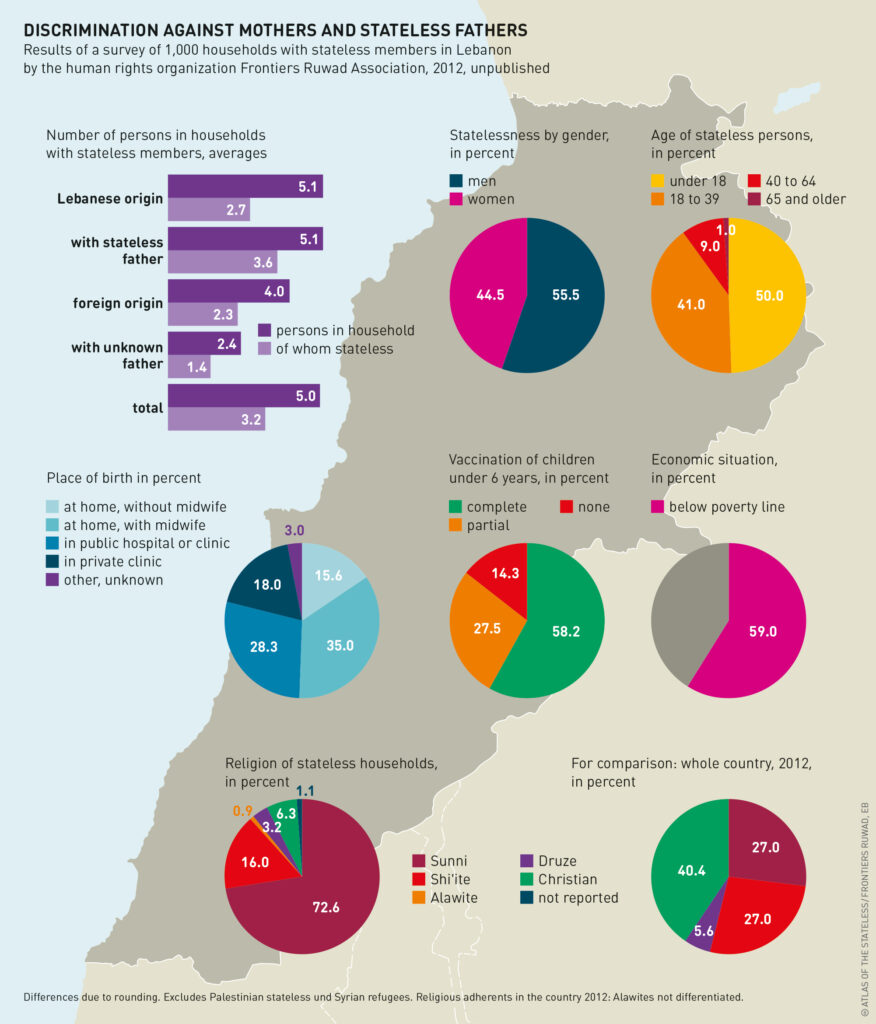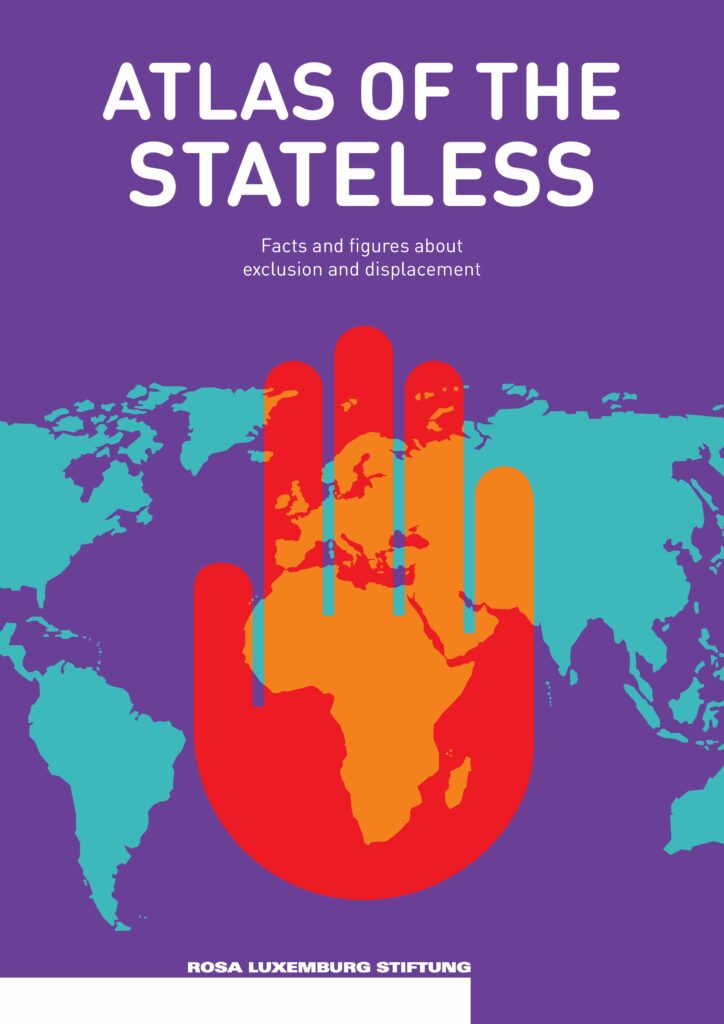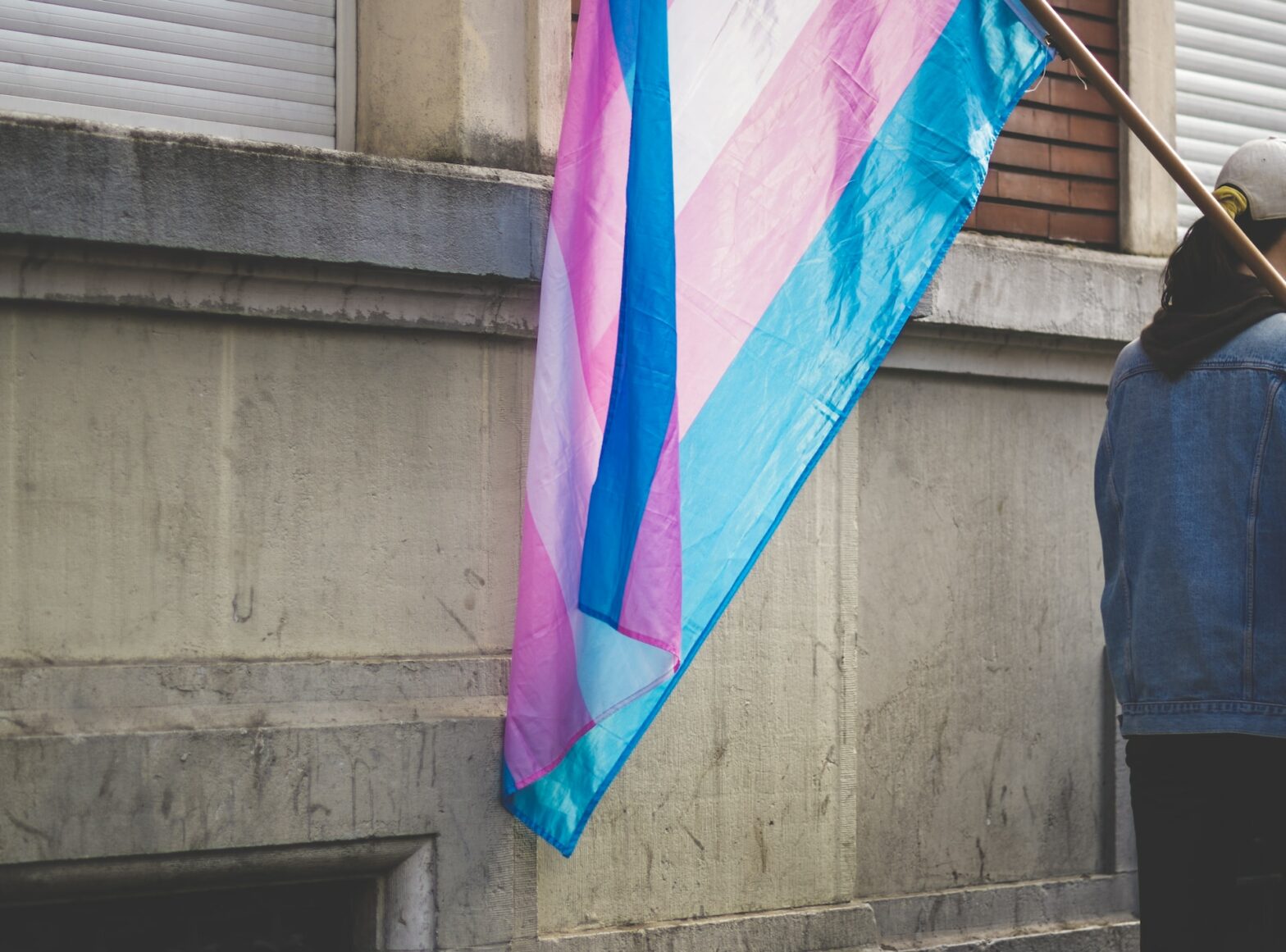Share Twitter Facebook Email Copy URL
Laws in many countries discriminate against women in numerous ways: in health, education, marriage, employment, parenthood, inheritance and property rights. Citizenship is no exception: women often cannot pass on their citizenship to their children. The situation is particularly acute in Lebanon, where the Nationality Law of 1925 condemns many people to statelessness today. It would be easy to solve such problems, but the country’s delicate religious and political balance prevents this.
There are no official data on the exact number and demographic characteristics of stateless persons in Lebanon. A 2011 survey conducted by Frontiers Ruwad Association, a non-government organization, found that 30 percent of stateless men are married to Lebanese women, and more than 45 percent of stateless children are born to Lebanese mothers. According to Article 1(1) of the Lebanese Nationality Law of 1925, only persons who are descended from a Lebanese father (by paternal jus sanguinis) are considered Lebanese. A Lebanese woman cannot pass her Lebanese nationality on to her husband or children. There are only two exceptions: for single mothers (Article 2) if the father has officially recognized and registered the child, or if the father of a minor child has died (Article 4).
The Frontiers Ruwad study focused on persons with long-term residency in Lebanon or Lebanese ancestors. According to the study, an estimated 60,000 stateless persons are living in Lebanon. It found that stateless persons in Lebanon fall into two main categories: those whose parents or grandparents never registered in the census of 1932 (the country’s last official census) and hence did not obtain the nationality, and those whose progenitors obtained Lebanese nationality but failed to register their marriages or the birth of their children. In both categories,statelessness has been passed on from generation to generation.

60,000 Lebanese are reported to be stateless,
half of them under 18 years of age
Lebanon has signed the core international human rights conventions that establish the principle of non-discrimination on any grounds. But in ratifying the Convention on the Elimination of All Forms of Discrimination against Women, it objected to Article 9(2), which guarantees women’s equality with respect to their ability to pass their nationality on to their children, and to Article 16(1), items c, d, f and g, with regard to equality within marriage. The gender discrimination in the Lebanese Nationality Law prevents cases of children born to Lebanese women and stateless men from being resolved, so perpetuating statelessness. This affects thousands of children who have inherited their father’s stateless status instead of their mother’s Lebanese nationality.
The Frontiers Ruwad Association’s caseload includes 3,218 stateless individuals who were born to a mother who was Lebanese at the time of their birth. In one case, despite the mother being Lebanese-born and the father being naturalized Lebanese, their seven children remained stateless, because the father was registered as “qayd ad-dars”, a category of people regarded as foreigners of “unidentified nationality.” Here too the problem was that the mother could not pass on her nationality, and the father did not register the marriage and the birth of the children, even after he had acquired Lebanese citizenship. When he died, he was officially still single. The Lebanese mother is still unmarried, according to officialdom. As a result, the couple’s seven children could not benefit from their father’s naturalization; they are stateless.
Lebanon has 15 separate personal status laws, one for each of its recognized religions. Under all of these laws, the father is automatically recognized as the guardian of the child. He alone has the legal capacity to represent his minor children. However, if the father is dead or has disappeared, the religious court appoints a legal guardian for the minor children. This is usually a male family member such as the uncle or grandfather. This was the case of the seven stateless children. The mother first had to prove that her father-in-law had died before she could submit a lawsuit on behalf of her children. Three years later, the lawsuit was successful, but it is still in the execution stage and the children are still technically stateless.
This case shows that the gender discrimination enshrined in the Lebanese legal system does not only lead to statelessness; it also makes it hard to find a solution. Amending the Nationality Law and the Personal Status Laws to lift this discrimination would help prevent and reduce statelessness. Members of Parliament, ministers and the National Commission for Lebanese Women have proposed draft laws, but none have been debated in Parliament. Although a significant number of politicians support a woman’s right to pass on her nationality, the issue has not been discussed at the legislative level.
In 2013, the Cabinet assigned a ministerial committee to discuss a proposal to lift gender discrimination in the nationality laws. This committee argued against doing so – ironically, on Mother’s Day – under the pretext of demographic and sectarian balance. It referred to “the Constitutional Principle of Equality”: the balance between Christians and Muslims, the country’s two main religious groups. Since most stateless people are Muslim, the committee feared that modernizing the constitution would increase the number of Muslim citizens, upsetting the religious equilibrium. But no formal statement was made, and the proposals seem to have been dropped.
This contribution is licensed under the following copyright licence: CC-BY 4.0

The article was published in the Atlas of the Stateless in English, French, and German.



